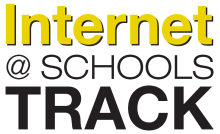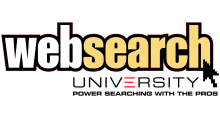|
|
Tuesday, October 24, 2017
C201/C202 - Digitization of Collections
10:30 a.m. - 12:15 p.m.This fast-paced double session focuses on five different digitization stories. One of the largest online photograph collections in the world is available through The Revs Institute, the premier destination to study and explore one of the most comprehensive archives of automotive history ever preserved for scholars and connoisseurs. Within the Institute resides both a museum and a library, including vintage automobiles and an ever-expanding catalog of rare books, photographs, and archival collections. These diverse collections uniquely explore the evolution of automobile design and the industry’s influence on modern culture. Hear how Revs digitizes and makes available more than 6,000 images per month (460,000 currently available with 600,000 more to go). The digitization team cleans and processes every negative and slide, creates finding aids, and adds metadata for each individual image. Volunteer support at all stages as well as crowd-sourcing edits and additions to the metadata from researchers and automotive enthusiasts from around the world adds to the project. Hulser describes two digitization projects. One is focused on an archive collection of glass and lantern slides of the La Brea Tar Pits created in the early 1900s made more accessible for research, marketing, and communications purposes. These items are now stored in a KE-EMu specimen management system, indexed and linked to an EOS online library catalog, and accessible for reproduction and rights management in a digital asset management system. The other project is digitization of an entire run of the NHMLAC peer-reviewed journal Contributions in Science (CiS) in collaboration with the Smithsonian Libraries to enable content discovery at the article level in the Biodiversity Heritage Library. Altmetrics analytic tools were then able to be applied to provide an understanding of online attention to research articles beyond traditional bibliometrics of citation counting. Barrilleaux discusses LOUIS’ Affordable Learning LOUISiana, which is aligned with the national affordability program for higher education. Partnering with local, statewide, and national partners to lower textbooks costs for Louisiana higher-education students. The initiative focuses on the course adoption of open textbooks and open educational resources (OERs), the finding of resources using fellows to match available open textbooks and OERs from existing repositories —Open Textbook Library, OER Commons, and MERLOT—with Louisiana’s common course catalog, and the supporting technology. Hear more about the Find Textbooks portal where faculty can search for their courses and see a linked list of available open textbooks and OERs available for adoption, or recommend one. Boulie presents a case study in success begetting success and discusses internal marketing strategies and techniques to build momentum for increased interest in digitization and digital collections. Success in digitization resulted in applying the workflows, storage strategies, file naming conventions, and best practices to other museum digital outputs and also led to increased donor interest in supporting future digitization efforts. Definitely a magic sauce recipe for success!





















